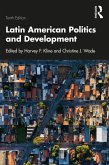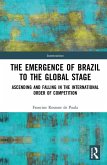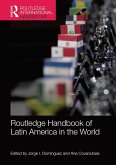Dieser Download kann aus rechtlichen Gründen nur mit Rechnungsadresse in A, B, BG, CY, CZ, D, DK, EW, E, FIN, F, GR, HR, H, IRL, I, LT, L, LR, M, NL, PL, P, R, S, SLO, SK ausgeliefert werden.
-Joel Wolfe, University of Massachusetts
"Rafael Ioris properly dispels the notion of late 1950s Brazil as embodied in the image of a smiling Juscelino Kubitschek overseeing the construction of Brasília and a dispute-free march towards national development. Ioris delves into the era's ideological debates and the lives of working-class people to provide us with a more realistic view of the challenges inherent in transformative human endeavors. Ultimately, Ioris sheds critical light on the years leading up to one of the most intriguing yet tragic developments of modern Latin America: the overthrow of Brazil's democratically elected government in 1964. Ioris's work is a must-read for anybody wishing to comprehend Brazil's subsequent efforts to further project itself globally."
-Kenneth P. Serbin, University of San Diego
"Drawing on a vast array of published and archival sources, Rafael Ioris has produced a sophisticated analysis of the debates about national development in postwar Brazil. This study offers fresh insights into the hopes and dreams of an impressive array of interest groups-including politicians, technocrats, labor leaders and many others-who sought to make the 'country of the future' into a developed nation."
-Marshall C. Eakin, Vanderbilt University
"This well-researched book offers a rich picture of the trajectory of development in the JK years and will serve as a valuable reference."
-Thomas D. Rogers, Emory University
"Overall, the book illuminates the wide spectrum of interpretations and meanings that scholars, policy-makers and directly affected socio-political groups assigned to the term 'development'. The reader gains a good sense of the lines of debate and eventual disagreement between the different interests, manifest in the contentious politics
of the early 1960s and the 1964 military coup."
-Oliver Dinius, University of Mississippi
"Scholars of this period in Brazilian history will welcome Ioris's detailed explication of the academic institutions, industry organizations, and labor groups that vied to influence economic policy during the Kubitschek administration."
- Eve E. Buckley, University of Delaware









